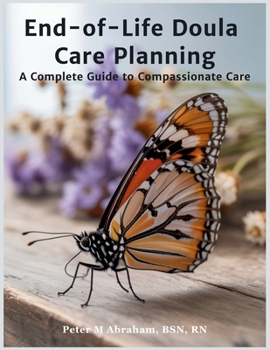End-of-Life Doula Care Planning: A Complete Guide to Compassionate Care
Transform From Compassionate Beginner to Confident Professional
This comprehensive guide transforms caring individuals into skilled end-of-life doulas equipped with proven frameworks for supporting families during life's most challenging transition. Whether you're new to this field or seeking to strengthen your existing practice, you'll develop the systematic approach necessary to provide meaningful, organized care.
You'll master the foundational Concerns → Interventions → Goals framework that turns overwhelming situations into manageable care plans. This structured methodology eliminates the uncertainty that leaves many death doulas wondering if they're genuinely helping families. Instead, you'll confidently assess needs across four essential pillars-physical, emotional, social, and spiritual-creating comprehensive support tailored to each family's unique circumstances.
The guide equips you with specialized knowledge for supporting families through specific conditions, including cancer, heart disease, diabetes, kidney and liver disease, dementia, Parkinson's disease, stroke, and progressive neurological conditions. You'll learn to navigate complex family dynamics, medication management challenges, and crisis situations with professional competence rather than relying solely on intuition.
Your communication skills will evolve dramatically. You'll learn evidence-based techniques for difficult conversations about death anxiety, spiritual struggles, forgiveness, and family conflicts. Rather than avoiding challenging topics, you'll facilitate meaningful discussions that bring healing and closure. The guide provides specific conversation starters and assessment questions for every situation you'll encounter, and this book is an excellent companion to Crucial End-of-Life Conversations: A Compassionate Guide for End-of-Life Professionals.
Crisis management becomes your strength rather than your weakness. You'll develop emergency planning skills, learn to recognize warning signs across different conditions, and create safety protocols that protect both families and your professional practice. This preparation transforms you from reactive to proactive in your approach.
Your professional boundaries will strengthen your effectiveness. You'll understand exactly when to provide direct support versus when to coordinate with medical teams, hospice services, or spiritual advisors. This clarity enhances rather than limits your impact, as families receive comprehensive care through appropriate channels.
Documentation and care planning become second nature. You'll create professional records that track progress, support continuity of care, and demonstrate your competence to medical professionals and families alike. This systematic approach reduces your stress while increasing your effectiveness.
Most importantly, you'll develop sustainable practices that prevent burnout while maximizing your impact. The guide teaches self-care strategies, boundary setting, and stress management techniques specifically designed for end-of-life work.
By completing this guide, you'll transition from someone with good intentions to a skilled professional capable of creating meaningful change during families' most vulnerable moments. Your natural compassion, combined with these proven tools and frameworks, will provide the transformation families desperately need when facing life's final chapter.





